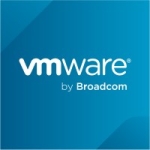What is our primary use case?
Basically, if at all, we wanted to have an interface for data warehouses on the cloud which worked on Azure or AWS. Snowflake, provides a more intuitive, rapid user interface where people can connect and maintain warehouses and share data among the people in the companies easily. Its pricing model and the model have made maintaining virtual warehouses simpler.
What is most valuable?
I appreciate the Snowflake marketplace, where you can drop data and allow other people throughout the world to access it. You can go to the Snowflake marketplace and connect to some data. If somebody else publishes, for example, COVID-19 data or weather data, you can sign up for new data sets and bring them into your warehouse, which I found very interesting.
You can connect to different cloud sources, including Azure and AWS.
You can report out, and all the cloud technologies have connected to Snowflake, allowing you to move the data or get the data into Snowflake.
The initial setup was pretty simple.
It scales really well.
The solution is stable.
The solution is reasonably priced.
What needs improvement?
I don't know about GCP, if they have connected for GCP. If they don't, they should allow for it.
Overall, they're doing great. I don't have any specific complaints or improvements that need to happen.
For how long have I used the solution?
I've used the solution for a couple of years now.
Buyer's Guide
Snowflake
January 2026
Learn what your peers think about Snowflake. Get advice and tips from experienced pros sharing their opinions. Updated: January 2026.
882,180 professionals have used our research since 2012.
What do I think about the stability of the solution?
The solution is quite stable since everything is in the cloud, and the data these days has become cheap with storage and everything in the cloud. Through clusters and warehouses, sizes can be increased or decreased based on usage, and they can be turned on and turned off. Sustainability-wise, I think it's a pretty good solution.
What do I think about the scalability of the solution?
It is scalable. The warehouses or auto-scaling features in the warehouses are great. You can go from small to medium to large all the way up to extra large, and there are different auto-scaling tasks that can happen. You can turn it on and turn it off based on the usage or auto-turn it on and turn it off. That's a pretty nice feature to have and we find it both sustainable and scalable for sure.
I work for clients, so last time when I worked for a client, there was a group of 100 people who were actually signed up to use Snowflake.
How are customer service and support?
I've never dealt with technical support. We did have people from Snowflake working with us directly, and we never ran into any issues that needed troubleshooting. The personnel from Snowflake, of course, would resolve whatever came up.
Which solution did I use previously and why did I switch?
I come from an Azure background as well, so Microsoft also comes with Azure Synapse, where it's a similar functionality as Snowflake, where it's warehousing on the cloud. Azure Synapse is also good. I'm unaware of AWS or GCP, and I heard that Google Cloud Platform also has Big Query and big data capabilities, which are tough competitors for Snowflake and other cloud warehousing tools.
How was the initial setup?
The implementation process was pretty straightforward. I didn't set it up, though. I used an already set up version. I just had to connect. I had to push data from Azure to Snowflake, create tables there, and have data loaded into those tables, and that's it. I wasn't doing anything else, so I didn't work on the infrastructure of Snowflake.
You would need a group of two or three people to maintain the product.
What about the implementation team?
I work for a consulting firm, so I don't work for the client, so I really don't know what the company used for deployment.
What's my experience with pricing, setup cost, and licensing?
Licensing was based on the warehouse. I don't recall it being very expensive.
What other advice do I have?
I'm a consultant and end-user.
I'm not currently using the solution right now and do not recall the last version I was on.
Now, I'm working for a different client on a different platform altogether. My company, as such, doesn't use Snowflake since we are in consulting. We have expertise in something, and then we help the clients deliver that solution on the technology.
Potential new users should just definitely give it a shot. They should start off with a POC, proof of concept, for the data that they have, and then, if everything works well and they can migrate in a cost-effective way.
I would recommend Snowflake to start off with since it's just picking up over the last couple of years. If I have to recommend anything, however, it would be more Microsoft tools I would recommend since that all comes as a package. You can do Synapse and Azure Data Factory, which is for ETL. You can also do Azure Data Lake Storage. There are different things that you can do when you buy something in a package like that. That said, I definitely recommend Snowflake if someone wants to give it a shot.
I'd rate the solution eight out of ten.
Which deployment model are you using for this solution?
Public Cloud
If public cloud, private cloud, or hybrid cloud, which cloud provider do you use?
Microsoft Azure
Disclosure: My company does not have a business relationship with this vendor other than being a customer.






















